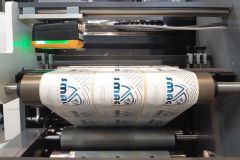While the USA is experiencing an unprecedented surge in mergers and acquisitions in the printing industry, the French market is struggling to attract buyers. Against a backdrop of local markets and a reluctance to make costly technological investments, potential buyers are few and far between, and French companies prefer rationalization to expansion. Added to this is the fragmentation of the sector, which, far from generating economies of scale through consolidation, intensifies competition and limits attractive divestment opportunities.
In the United States, the printing industry has experienced exceptional M&A activity, reaching record levels. In 2021 and 2022, the number of takeovers exploded, a trend that has continued into 2023 and is set to continue into 2024. This dynamism marks a turning point for an industry which, after the Great Recession, had been largely abandoned by investors. Today, the US market is attracting an unprecedented diversity of buyers, including private equity funds, family holdings, strategic buyers and individual investors. Each of these profiles brings specific strategies, enabling sellers to find growth or transformation options tailored to their objectives. This increased demand, combined with historically low interest rates (until the end of 2022) and a resilient economy, has strongly stimulated these transactions, placing the US printing industry at the center of consolidation.
In France, the printing sector remains extremely fragmented, with many small structures. Unlike in the United States, where this fragmentation has encouraged takeovers to achieve critical mass, in France, the small size of companies and their limited investment capacities are holding back consolidation.
Financial players, such as private equity funds, show little interest in French companies in the sector, often perceived as less profitable and more focused on traditional methods. In contrast to the USA, where many diversified printing plants integrate advanced communication solutions, French companies have not always evolved towards complementary services such as data management or digital marketing. This makes them less attractive to investors looking for quick returns.
For many French printers, the investment required to go digital is daunting. The acquisition of digital presses, industrialization, automation, as well as the integration of data management and personalization solutions represent costly evolutions. This lack of modernization, combined with persistent specialization in traditional offset, makes small French printers more vulnerable and less competitive in the face of more modern, versatile players.
The divide between those who invest in digital technology and those who don't is also perceptible in France, albeit to a lesser extent than in the USA. French companies that adopt advanced technologies manage to retain their customers beyond mere price considerations, establishing longer-lasting commercial relationships. However, such cases are still rare, and mainly concern the sector's larger structures.
The French printing industry is experiencing major difficulties in ensuring business succession. Often family-owned, these companies struggle to find qualified buyers. Younger generations are reluctant to take over companies perceived as lacking in innovation and exposed to the risk of constant technological transformation. Read more : Groupe Renard: no buyer and an uncertain future then Renard group liquidated
The rare transactions are mainly between local players, often motivated by geographical proximity and a better understanding of local constraints. However, this model of intra-regional takeovers limits potential synergies and does not allow acquirers to benefit from the economies of scale that wider consolidation could offer.








